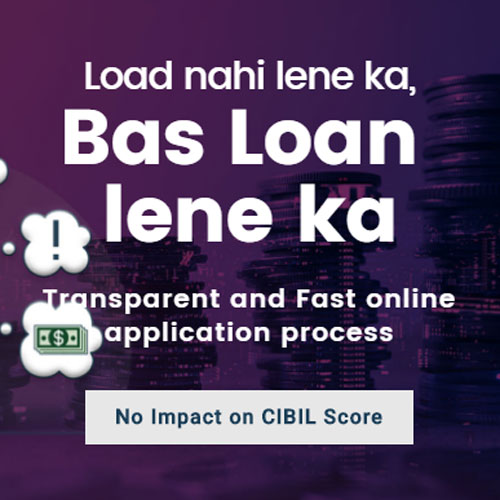How to Apply Credit Card
What is a credit card?
A charge card is a plastic card issued by a bank that enables you to acquire cash from the bank so you can buy whatever you need. May it purchase a supper from McDonald’s or a flight ticket to Switzerland, you can utilize your credit for anything that you like. For whatever length of time that you reimburse the sum you acquire before the following charging cycle begins, you won’t have pay any overabundance sum. On the off chance that you don’t pay the whole sum and choose pay in portions, you will likewise need to pay the intrigue related with it.
Credit Card Apply
The dispatch of Mastercards has changed the whole monetary world. These little plastic cards may not look critical but rather they significantly affect the economy. Because of the comfort offered by this money related device alongside a plenty of different focal points that it gives, an ever increasing number of people are applying for and obtaining Visas. Dissimilar to check cards, Visas take a shot at the standard of credit i.e., people obtain stores when they swipe their Mastercard and reimburse the same through their month to month bills. In any case if abused, charge cards can bring about a genuine imprint in the person’s accounts as loan cost will be relevant on late installments.
A large number of banks and budgetary establishments today give charge cards to their clients. The quantity of Mastercards that are given additionally differ and every one of them accompany particular advantages and highlights to suit the necessities and prerequisites of horde clients. Clients can apply for Mastercards through various routes as long as they meet the qualification prerequisite set by the charge card supplier. Nowadays, clients can undoubtedly get a charge card online and in addition disconnected.
Credit Card-Apply Online
With the coming in of the web, nearly everything today has gone computerized thus have banks and budgetary establishments. In the event that clients wish to apply for a charge card, they can do as such online as online Mastercard application is exceptionally mainstream and furthermore helpful. Actually, getting on the web Visa has turned out to be significantly less demanding. Keeping in mind the end goal to do as such, clients should take after the means given underneath –
- Individuals will have to visit the official website of the bank and apply credit card online of their choice, as long as they meet the eligibility criteria.
- Customers can also e-mail the bank if necessary in order to avail a credit card.
Apply for Credit Card Offline
Another option that can be availed is applying for a credit card offline. In order to do so, the steps given below will have to be followed –
- This can be done by visiting a branch of the bank that the customer wants to avail a credit card from.
- Applicants will be asked to fill the necessary forms and in case they meet the required eligibility criteria, they will be able to avail the said credit card.
- Alternatively, you can also approach the banks by calling their support centers which are typically available 24/7 on all days of the week.
Understanding Credit Card Numbers
There are 16 digits on every credit card. The very first digit present on a credit card signifies its system. 3 stands for travel or entertainment car, 4 stands for Visa card, 5 stands for MasterCard and 6 stands for Discover Card.
The card number structure varies by the system. For example a Diners Club card will start with 38, whereas, the American Express cards will start with 37.
American Express – The third and fourth digit specify the type and currency. Starting from the fifth digit till the eleventh digit is the account number. From the twelfth digit till the fourteenth digit is the card number within the account. The fifteenth digit is a check digit.
Visa – From the second digit till the sixth digit is the bank number. From the seventh digit till the twelfth digit or from the seventh digit till the fifteenth digit is the account number. The thirteenth digit or the sixteenth digit is the check digit.
MasterCard – The second and third digit, the second digit up to the fourth digit, the second digit up to the fifth digit or the second digit up to the sixth digit is the bank number. This depends if the second digit is 1,2,3 or anything other than that. The digits after bank number up to the fifteenth digit are the account number. The sixteenth digit is a check digit.
How to use a credit card?
It is anything but difficult to utilize a Mastercard. At the point when banks issue a Mastercard, they make a rotating represent that card. Once the clients get their Visas, they can utilize it to make buys using a credit card. This credit is really the sum that cardholders have acquired from the card backer. They need to reimburse the exceptional sum toward the finish of each charging cycle. There is an utmost on the measure of credit that one can utilize and cardholders should ensure they don’t surpass this breaking point.
To make installments utilizing their charge cards, cardholders need to just get their cards swiped at vendor stores and validate the exchange by entering their PIN number. Some Visas don’t expect you to enter a PIN number. In the event that you are utilizing your card to influence online installment, to ensure the site is a protected one. Enter your Mastercard points of interest on the checkout area and validate the installment by entering the PIN or OTP (One Time Password).
Compare Credit Cards from Top Banks in India:
Note – The rates/fees and charges may be changed by the banks at any time.
Fees and Charges for Top Credit Cards
| Card Name | Joining fee* | Annual fee*(Year 1) |
|---|---|---|
| Standard Chartered Manhattan Credit Card | Rs.499 | Nil |
| SBI Simply Click Credit Card | Nil | Rs.499 |
| Standard Chartered Platinum Rewards Credit Card | Nil | Rs.399 |
| Citibank Cashback Credit Card | Nil | Rs.500 |
| Standard Chartered Super Value Titanium Credit Card | Nil | Rs.499 |
| Amex Gold Card | Nil | Rs.1,000 |
| Yatra SBI Credit Card | Nil | Rs.499 |
| Amex Platinum Travel Credit Card | Nil | Rs.3,500 |
| SBI Signature Credit Card | Nil | Rs.4,999 |
| IndianOil Citi Platinum Credit Card | Nil | If the annual spend is less than Rs.30,000, an annual fee of Rs.1,000 is charged. |
*Taxes will be levied as applicable on these charges. The charges in the table are subject to change based on future revisions implemented by the banks
Features of a Credit Card
Banks offer amazing features on their credit cards. These features vary depending on the card provider and the type of credit card that people purchase. Some of them are as follows:
Accepted Globally – Today, most credit cards that are issued in India are international cards and are accepted by various merchants all over the world.
Balance Transfer – Credit cardholders can transfer the outstanding balance of their existing cards issued by one bank to the credit card account of another bank. Doing so helps them in saving money and repaying the amount at a low rate of interest. Banks offer various balance transfer options to their cardholders, which allows them to repay the amount on a monthly basis within a tenure of their choice.
Instalment Payment Plan – Many banks offer the installment payment option to their cardholders. This feature allows cardholders to convert their transactions into monthly installments. Cardholders can choose the tenure for their EMI plan. Generally, these plans have very attractive interest rates. There are some banks that offer 0% installment payment plans to their customers.
Loans on Credit Cards – Some credit cards offer pre-approved loans to their holders at low-interest rates.
Utility Bill Payment – Credit Cards have made it easy and quick for people to pay their utility bills. Using their cards, cardholders can pay all their utility bills online at one go.
Alerts – Credit cardholders receive bill payment reminders via SMS and e-mail from their banks every month, which helps them in not missing out on their monthly payments.
E-statement – Most banks today provide e-statements to their credit cardholders at the end of every billing cycle. Cardholders can access this statement at any time online.
Joining Fees – When customers apply for a credit card, they have to pay a certain amount for enrollment, known as the joining fee. There are certain cards that do not have any joining fee as well.
Annual Fees – Every credit cardholder have to pay a fixed amount to renew their card every year. This amount is called the annual fee or renewal fee. This amount varies depending on the card that a person opts for. Some banks waive this fee for their customers for a period of minimum 1 year as benefit for achieving certain spends milestone.
Lifetime Free Card – There are some banks that offer lifetime fee credit cards, which means cardholders do not have to pay any annual fee for these cards.
Lost Card Liability – Many banks offer lost card liability coverage to their credit cardholders. This feature protects the cardholders from fraudulent transactions that made using their cards after they have reported its loss to their card provider.
Insurance Coverage – Some banks offer insurance protection on certain credit cards they offer. For example – travel insurance, life insurance, etc.
Cash withdrawal facility – Credit cardholders can use their cards to withdraw money from ATMs. Banks charge a small fee for the service and cardholders can instantly avail money in any part of the world.
24×7 phone banking Service – Banks offer 24×7 phone banking service to all their credit card holders. Some banks have a separate helpline number for their cardholders. Cardholders can contact on this number to get any assistance related to their card. For example – They can contact the department to avail concierge services, make card replacement requests, report loss of cards, etc.
Credit Card Bill Payment – Banks allow their credit cardholders to pay their credit card bills online and offline. Cardholders can use NEFT, Internet Banking, Cash, Cheques, etc. facilities to pay their bills.
Benefits of a Credit Card
Welcome Gift – Many banks offer a welcome gift to new credit card applicants once the card is issued to them. This gift can be in the form of bonus points, gift vouchers, discounts, etc. The welcome gift differs depending on the card and the bank.
Rewards Program – All credit cards generally have a reward program, which allows cardholders to earn reward points on every transaction they make using their cards. The amount of points that cardholders can earn per transaction is fixed and differs from card to card. The points that card members collect can be redeemed for various gifts that are listed in the rewards catalogue of the cards. These gifts can be discounts, product, services, cashback offers, etc. Some credit cards allow card members to redeem their points against air miles and cash as well.
Fuel Surcharge Waiver – Many banks offer fuel surcharge waiver to credit cardholders when they spend specific amount of money on fuel every month. This offer is available on fuel transactions made at all Indian petrol bunks.
Cashback Benefits – There are certain credit cards that offer cashback benefits to the customers. The amount of cashback that will be offered depends on the provider.
Lifestyle Benefits – Cardholders can enjoy various lifestyle benefits on their credit cards. Lifestyle benefits include dining, shopping, golf, wellness, entertainment, etc. privileges.
Travel Benefits – This is one of the major reasons for credit cards being so popular among people. There are some credit cards that offer amazing travel benefits to the customers. Travel benefits include air miles, airport lounge access, travel insurance, airline offers, hotel offers, etc.
Airport Lounge Access – Some credit cards offer complimentary airport lounge access to the cardholders. The offer varies from one bank to another. Some banks put a limit on the number of visits, while some others allow access only to Indian airport lounges.
Exclusive Privileges from Visa/American Express/MasterCard – Visa, MasterCard and American Express are three popular and recognized credit card variants. Depending on the variant of your card, you can enjoy exclusive lifestyle, travel, etc. offers from MasterCard/Visa/American Express.
Add-on Cards – Many banks allow their credit cardholders to apply for add-on cards for their immediate family members. Most card issuers offer add-on cards for free, but some of them limit the amount of add-on cards that one can apply for. Cardholders can enjoy all the privileges of their primary cards on their add-on cards.
Air Miles – Certain credit cards such as travel or Airline cards offer Air Miles to their customers. These miles can be JPMiles, Air India Air Miles, etc. Cardholders can collect these miles and redeem them to avail flight tickets and other travel benefits.












